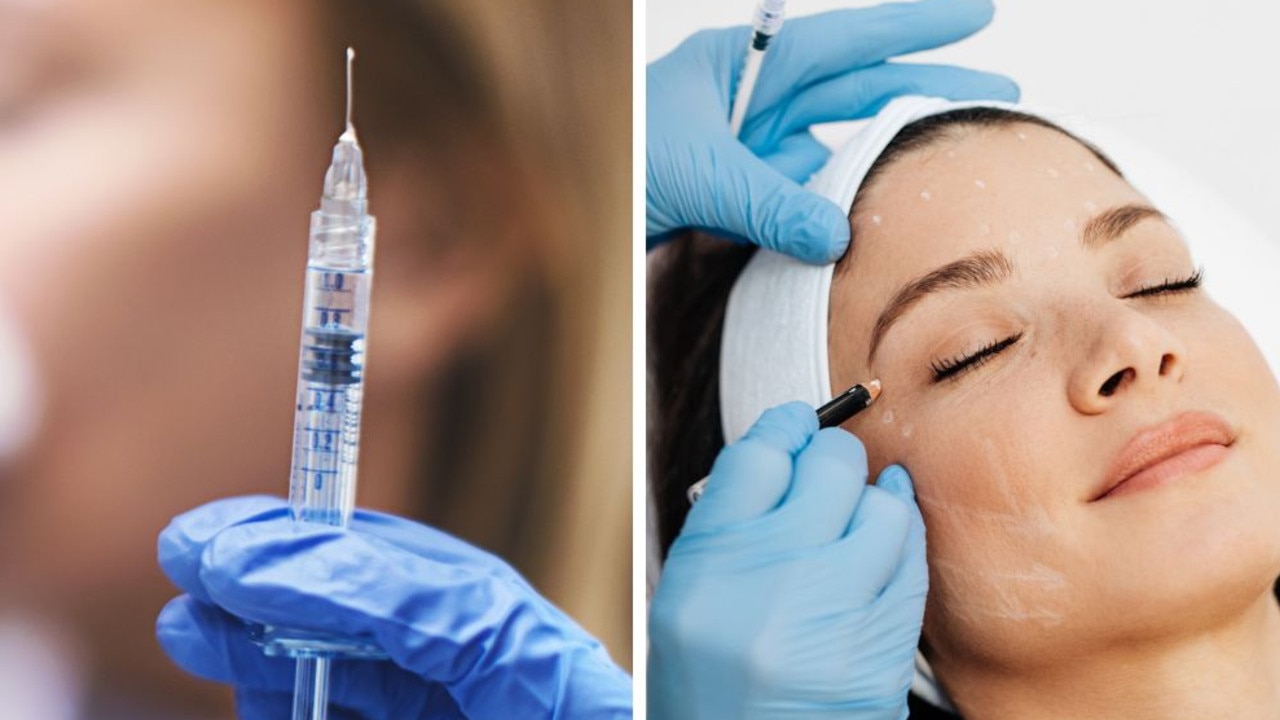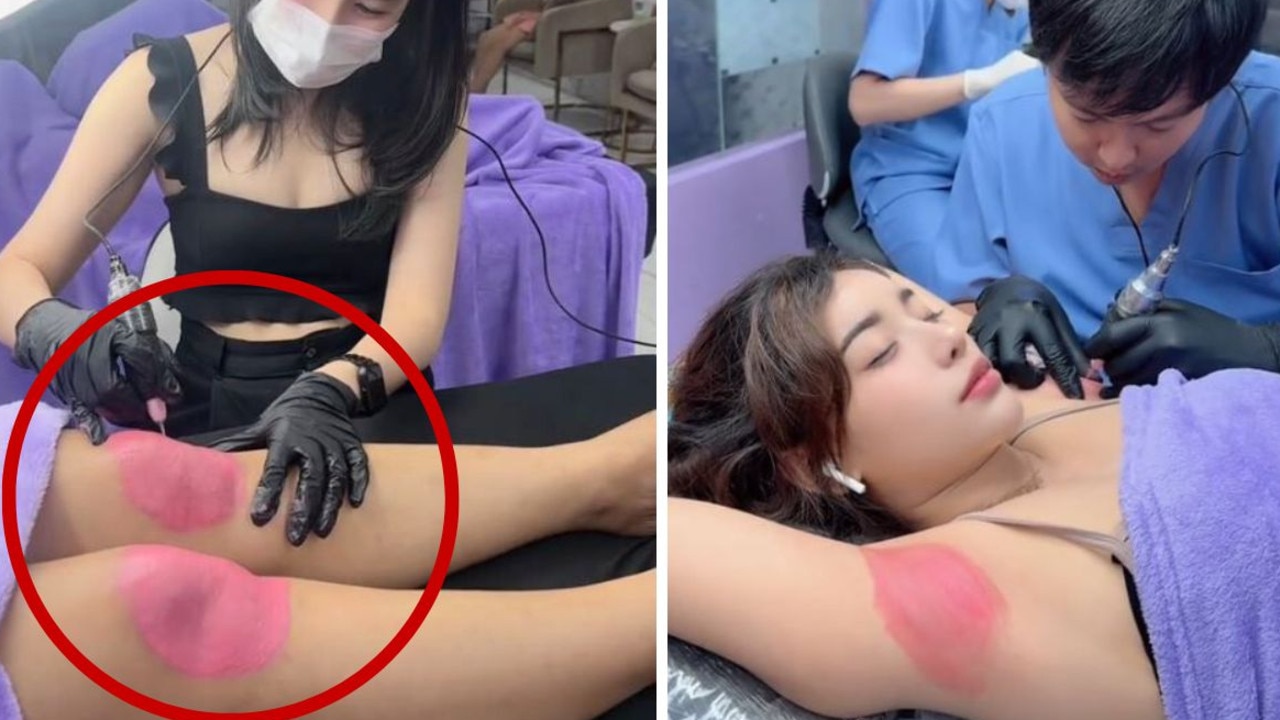Selfie project showing drastic changes from retouching apps shows pressure on teens to be perfect
Stark photos show how teens are highly skilled at altering their own photos and objectively analysing their supposed flaws.

A new selfie art project has called into question how everyday apps are making teens feel about their looks.
The project, titled “Selfie Harm”, allowed teens to tweak a photograph of themselves until they felt “social media ready”, producing doll-like results, with the teens slimming their faces, smoothing their skin and shaving centimetres from their noses and chins.
The artist, John Rankin Waddell, who goes by the artist name Rankin, spent the past few years experimenting with smartphone apps that allowing teens to quickly and drastically alter their appearance. He says the mixture of at-your-fingertips technology and the blending of self-worth with personal brand is a “recipe for disaster”.
For the project the 15 British teens were given about five minutes to tweak their portraits, photos Rankin took of them, and the results are stark and shocking.
The pictures show altered facial features, changed eye colours, noses shaved and slimmed down. The teens have smoothed their skin and most have severely plumped their lips.
The results reflect the current trend of aspirational aesthetics spruiked by cosmetic surgeons, achieved with fillers and injections, and imitated by Snapchat and Instagram filters. High cheekbones, full lips and big eyes are all desirable to teens and available in only a few swipes.
In a few minutes, using one of thousands of freely available apps, teens aged 13 to 19 tweaked their already very beautiful images to be what they deemed “social media ready”. They made themselves have wider, cow-like eyes, tiny chins, huge lips, thinner noses and many blurred away their freckles.
These selfie filters are so commonplace it’s easy to forget there was a time when retouching a photo was not an option.
Rankin thinks the discussion around retouching on social media apps needs to shift in the same way it did around photoshop and retouching of models in magazines, saying the pressure to be perfect has shifted from print to Instagram.
“People are mimicking their idols, making their eyes bigger, their nose smaller and their skin brighter, and all for social media likes,” Rankin told Fashionista.
“It’s just another reason why we are living in a world of FOMO, sadness, increased anxiety and Snapchat dysmorphia. It’s time to acknowledge the damaging effects that social media has on people’s self-image.”
Thanks @bbcthree for sharing my Selfie Harm project 🙠https://t.co/04mzB6u8SU
— Rankin (@rankinphoto) February 14, 2019
I understand wanting to be the best version of yourself, but I would hope you’d want to at least look like yourself. This is terrifying. https://t.co/b1XL73AZ3H
— Rachael Kelley (@RachaelKelley13) February 5, 2019
Rankin noted many of the teens didn’t necessarily prefer the photoshopped image but said the looks they went for were what was considered the norm for people in their age group.
“Social media has made everyone into their own brand. People are creating a two-dimensional version of themselves at the perfect angle, with the most flattering lighting and with any apparent ‘flaws’ removed,” he said.
“Mix this readily-available technology with the celebrities and influencers flaunting impossible shapes with impossible faces and we’ve got a recipe for disaster.”
Celebrities have also been pushing forward the conversation about the toxic effect social media has on young people, with some suggesting it has led to rising rates of cosmetic surgery and other interventions like fillers and Botox.
“Ban FaceTune. F**k FaceTune. So angry with FaceTune,” actress Jameela Jamil told ELLE last year, saying apps that smooth out cellulite or alter people’s facial features create an addiction to an unattainable image.
“I honestly sometimes wonder if cosmetic surgeons invest in it or something, because naturally, if you constantly see your nose tiny, you’re going to want to go out and match what you see in the app,” Jamil said.
“Either way, I don’t think it’s healthy.”



